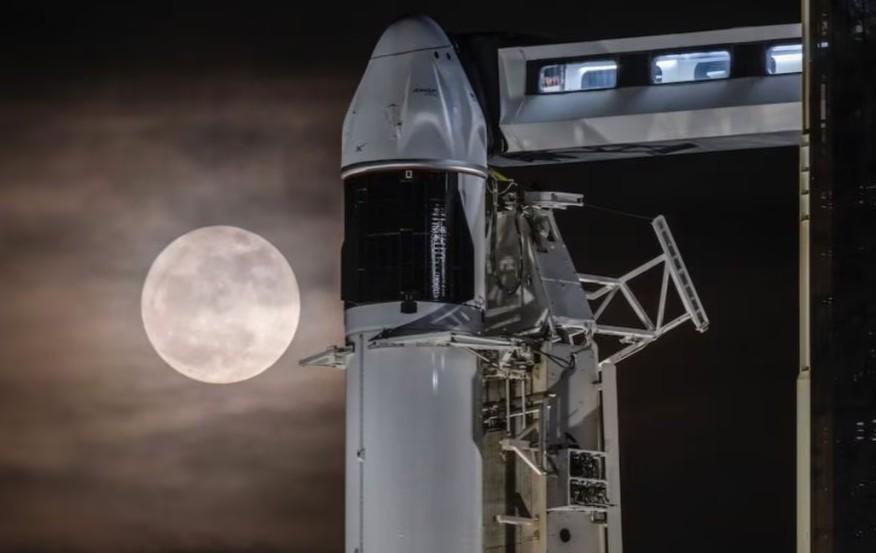
Pichai, Musk & Bezos competing to establish data centres on Moon: Report
The tech industry has been abuzz with the latest report from the Wall Street Journal, which claims that Sundar Pichai, Elon Musk, and Jeff Bezos are exploring the possibility of storing and processing data on the Moon. This ambitious venture has sparked a new wave of competition among these tech giants, with each trying to outdo the others in establishing a presence on the lunar surface. But what drives this push, and what benefits can be expected from setting up data centres on the Moon?
According to the report, the Moon offers a stable environment with low temperatures in certain regions, which could significantly reduce cooling costs for servers. This is a crucial factor, considering that data centres are among the most energy-intensive facilities on the planet, with cooling systems accounting for a substantial portion of their power consumption. By leveraging the Moon’s natural environment, these companies could potentially save millions of dollars in energy costs, making their operations more sustainable and environmentally friendly.
Another significant advantage of establishing data centres on the Moon is the availability of open land. Unlike on Earth, where environmental concerns and regulations often limit the construction of large facilities, the Moon’s surface offers a vast, untouched expanse of territory that can be used to build huge data centres without any such constraints. This would enable companies to design and construct facilities that are tailored to their specific needs, without having to worry about the environmental impact or navigate complex regulatory frameworks.
The report suggests that these tech giants are drawn to the Moon’s unique combination of stability, low temperatures, and open land, which makes it an attractive location for storing and processing large amounts of data. With the rapid growth of cloud computing, artificial intelligence, and the Internet of Things (IoT), the demand for data storage and processing capacity is skyrocketing, and companies are looking for innovative solutions to meet this demand. Establishing data centres on the Moon could provide a strategic edge in this competitive market, allowing companies to offer faster, more reliable, and more secure data services to their customers.
Sundar Pichai, CEO of Google, has been a vocal proponent of leveraging technology to drive innovation and sustainability. Under his leadership, Google has made significant investments in renewable energy, energy efficiency, and sustainable infrastructure. Establishing a data centre on the Moon would be a natural extension of this strategy, allowing Google to reduce its carbon footprint while expanding its data storage and processing capabilities.
Elon Musk, on the other hand, has been a pioneer in space exploration and development, with his company SpaceX leading the charge in reusable rocket technology and lunar missions. Musk has already announced plans to send humans to the Moon by 2024, with the ultimate goal of establishing a permanent, self-sustaining human presence on the lunar surface. Establishing a data centre on the Moon would be a key component of this vision, providing a critical infrastructure for supporting human settlements and scientific research on the lunar surface.
Jeff Bezos, founder of Amazon, has also been investing heavily in space technology, with his company Blue Origin developing a range of lunar missions and spacecraft. Bezos has stated that he believes the Moon can play a critical role in the development of a sustainable human presence in space, with its resources and strategic location making it an ideal hub for space exploration and development. Establishing a data centre on the Moon would be a key part of this strategy, allowing Amazon to expand its cloud computing capabilities while supporting the growth of a lunar economy.
While the idea of establishing data centres on the Moon may seem like science fiction, it is clear that these tech giants are dead serious about exploring this opportunity. With their combined resources, expertise, and vision, it is likely that we will see significant progress in this area in the coming years. As the report notes, the Moon offers a unique combination of advantages that make it an attractive location for data storage and processing, and it is only a matter of time before we see the first lunar data centre come online.
In conclusion, the competition between Sundar Pichai, Elon Musk, and Jeff Bezos to establish data centres on the Moon is a significant development that has the potential to transform the tech industry. With its stable environment, low temperatures, and open land, the Moon offers a unique combination of advantages that make it an attractive location for data storage and processing. As these tech giants continue to explore this opportunity, we can expect to see significant investments in lunar infrastructure, space technology, and sustainable energy solutions. The future of data storage and processing is likely to be shaped by this new frontier, and it will be exciting to watch as this story unfolds.





